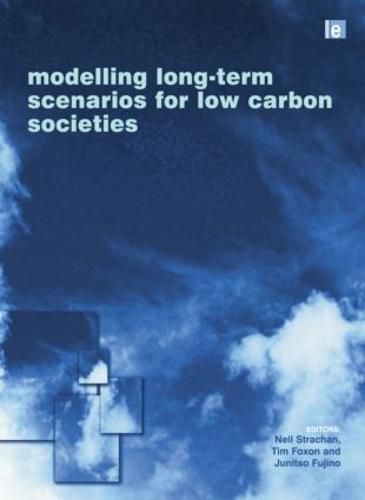Readings Newsletter
Become a Readings Member to make your shopping experience even easier.
Sign in or sign up for free!
You’re not far away from qualifying for FREE standard shipping within Australia
You’ve qualified for FREE standard shipping within Australia
The cart is loading…






With the ever-increasing impacts of climate change, it is now clear that global society will have to restructure its energy systems in order to decrease carbon emissions. The scenarios under which this transition to low-carbon societies (LCS) could occur would have complex economic, technological, behavioural and policy implications.
This volume, a supplement to the Climate Policy journal, considers these implications by examining different low-carbon scenarios for different countries, modelled at different scales and typologies. Two overview chapters, co-written by international experts, set the context of scenario development and quantification of LCS, and summarize the findings on the economic implications, societal responses, technological developments and required policy measures to enable LCS across a range of countries. Further chapters detail the modelling of various scenarios and outline the model methodology, detail the economic and technological consequences of transitions to LCS, and comment on the strengths and weaknesses of specific policies.
$9.00 standard shipping within Australia
FREE standard shipping within Australia for orders over $100.00
Express & International shipping calculated at checkout
With the ever-increasing impacts of climate change, it is now clear that global society will have to restructure its energy systems in order to decrease carbon emissions. The scenarios under which this transition to low-carbon societies (LCS) could occur would have complex economic, technological, behavioural and policy implications.
This volume, a supplement to the Climate Policy journal, considers these implications by examining different low-carbon scenarios for different countries, modelled at different scales and typologies. Two overview chapters, co-written by international experts, set the context of scenario development and quantification of LCS, and summarize the findings on the economic implications, societal responses, technological developments and required policy measures to enable LCS across a range of countries. Further chapters detail the modelling of various scenarios and outline the model methodology, detail the economic and technological consequences of transitions to LCS, and comment on the strengths and weaknesses of specific policies.